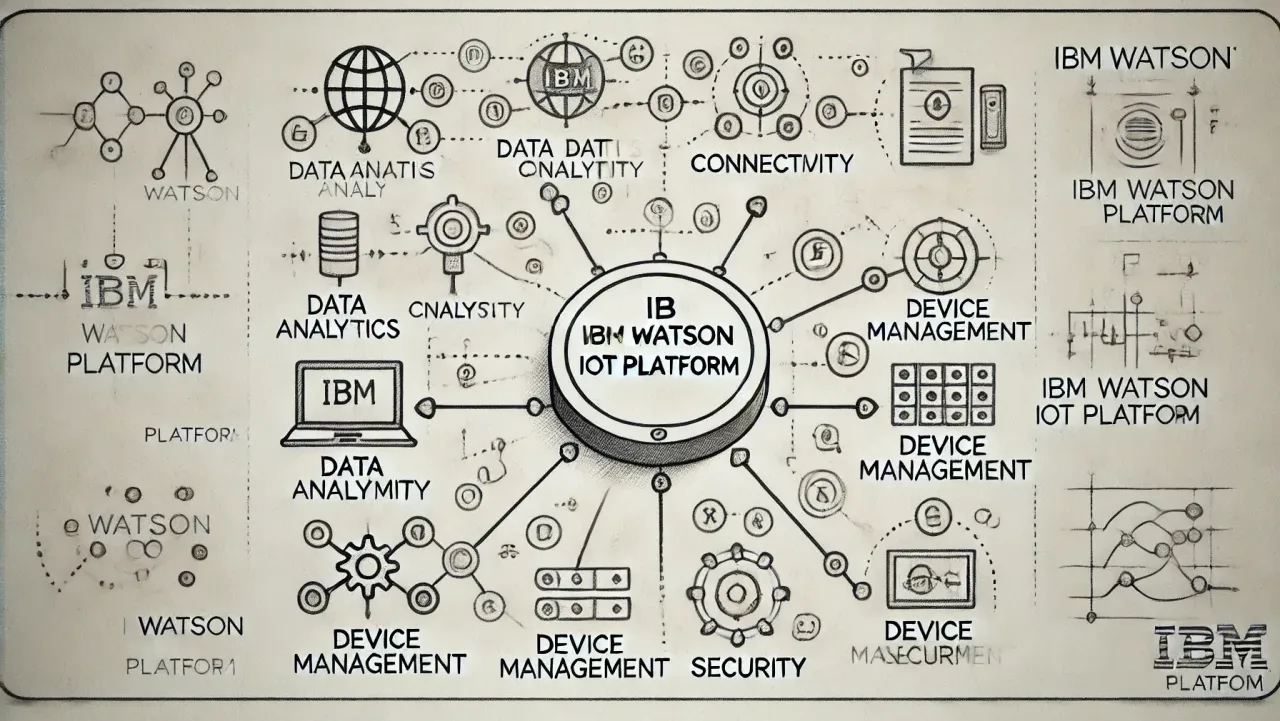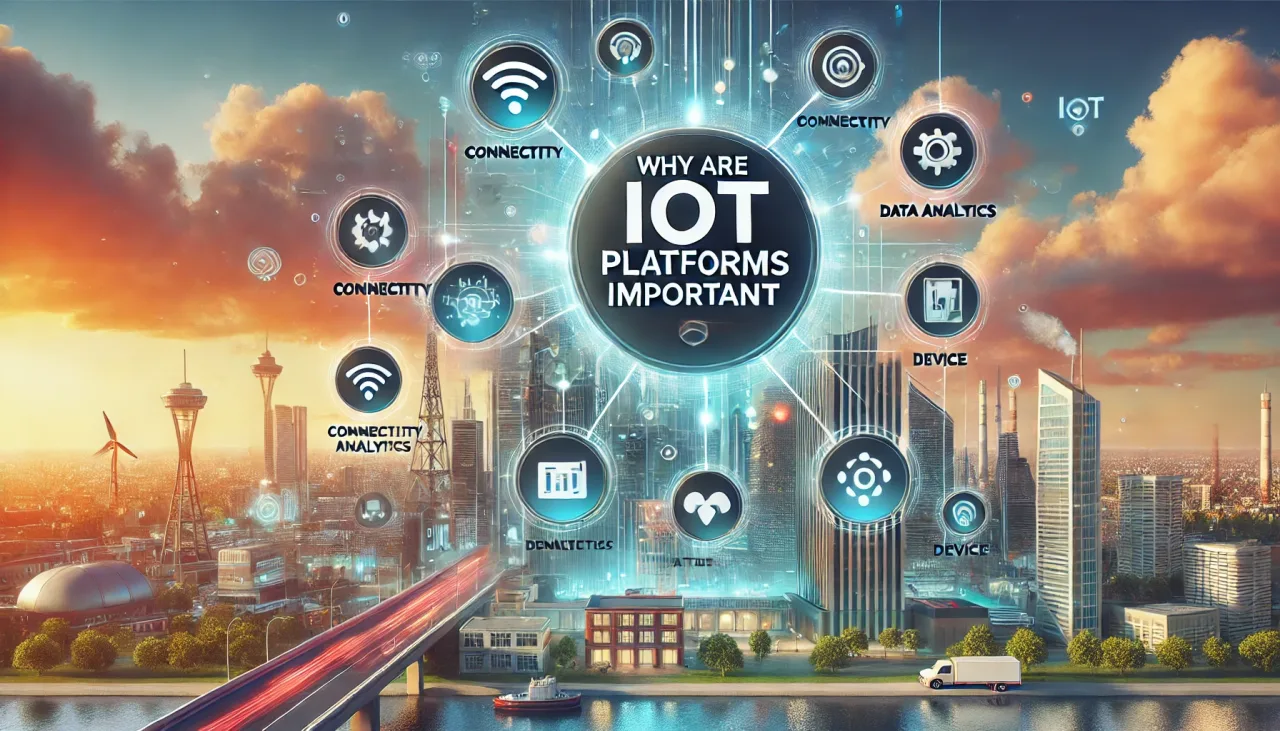In this Article
Introduction
The Internet of Things (IoT) is transforming the technological landscape, providing innovative solutions and creating new opportunities across various industries. At the heart of this transformation are IoT platforms, which play a crucial role in managing the vast networks of connected devices, processing data, and enabling seamless communication. Understanding why IoT platforms are important is essential for businesses and individuals looking to leverage this technology effectively. These platforms facilitate real-time data analysis, providing insights that can drive strategic decisions and innovation. They also enhance interoperability between different devices and systems, ensuring smooth integration and functionality. In this detailed article, we will explore the top five reasons why IoT platforms are important and how they contribute to the success of IoT deployments. Furthermore, we will discuss how IoT platforms improve scalability, allowing businesses to grow their IoT solutions efficiently, and enhance security measures to protect sensitive data from cyber threats.
1. Streamlined Device Management
Simplified Device Onboarding and Provisioning
One of the primary reasons IoT platforms are important is their ability to streamline the management of connected devices. IoT platforms provide tools for simplified device onboarding and provisioning, ensuring devices are correctly configured and ready for deployment. This reduces the complexity and time required to bring new devices online, allowing businesses to scale their IoT deployments efficiently.
Real-Time Monitoring and Maintenance
IoT platforms offer real-time monitoring and maintenance capabilities, enabling businesses to keep track of device status and performance continuously. This proactive approach helps identify and address issues before they escalate, ensuring devices operate optimally and reducing downtime. The ability to remotely update firmware and software also ensures devices remain secure and functional throughout their lifecycle.
2. Enhanced Connectivity and Data Management
Reliable Communication Protocols

Ai Image by Dall-E
IoT platforms support a wide range of communication protocols, such as MQTT, CoAP, and HTTP, ensuring reliable data transmission between devices and the cloud. This versatility allows businesses to connect different types of devices, regardless of their communication standards, creating a cohesive and interoperable IoT ecosystem.
Efficient Data Collection and Storage
Efficient data management is another critical aspect of IoT platforms. These platforms facilitate the collection, storage, and analysis of vast amounts of data generated by connected devices. By securely storing data and providing advanced analytics tools, IoT platforms enable businesses to gain valuable insights and make informed decisions.
3. Advanced Data Analytics and Insights
Real-Time Data Processing
IoT platforms provide real-time data processing capabilities, allowing businesses to analyze data as it is generated. This immediate access to information enables timely decision-making and quick response to changing conditions. For example, in industrial settings, real-time data analytics can predict equipment failures and schedule maintenance before issues arise, reducing downtime and maintenance costs.
Predictive Analytics
Predictive analytics is a powerful feature of IoT platforms, leveraging machine learning and artificial intelligence to forecast future trends and behaviors based on historical data. This capability is particularly valuable in industries such as manufacturing, healthcare, and agriculture, where anticipating problems and optimizing operations can lead to significant cost savings and efficiency improvements.
4. Improved Security and Compliance
Robust Security Measures
Security is a top concern in IoT deployments, and IoT platforms play a vital role in ensuring the safety and integrity of connected devices and data. These platforms implement robust security measures, including data encryption, authentication, and access control, to protect against cyber threats and unauthorized access. By maintaining high security standards, IoT platforms help safeguard sensitive information and maintain user trust.
Compliance with Regulatory Standards
Compliance with regulatory standards is another important aspect of IoT platforms. These platforms help businesses adhere to industry-specific regulations and best practices for data privacy and security. By ensuring compliance, IoT platforms minimize the risk of legal issues and penalties, providing peace of mind for businesses and their customers.
5. Application Enablement and Customization
Flexible API Integration
IoT platforms offer flexible API integration, allowing businesses to connect their IoT data with other systems and applications seamlessly. This interoperability enables the development of custom IoT applications tailored to specific business needs, enhancing functionality and driving innovation.
Development Tools and Frameworks
IoT platforms provide a range of development tools and frameworks, simplifying the process of building, deploying, and managing IoT applications. These resources empower developers to create innovative solutions that leverage the full potential of IoT technology. By offering user-friendly interfaces and comprehensive support, IoT platforms make it easier for businesses to implement and scale their IoT projects.
Leading IoT Platforms in the Market
1. AWS IoT Core
Overview of AWS IoT Core
AWS IoT Core is a managed cloud platform that facilitates secure communication between connected devices and cloud applications. It supports billions of devices and trillions of messages, ensuring reliable and scalable connectivity.
Key Features of AWS IoT Core
- Device Management: Simplifies the process of onboarding, organizing, monitoring, and managing IoT devices at scale.
- Secure Communication: Ensures secure data transmission through TLS and mutual authentication.
- Real-Time Data Processing: Provides tools for real-time analysis of IoT data, enabling actionable insights.
Use Cases for AWS IoT Core
- Smart Homes: Managing and controlling devices such as thermostats, lighting systems, and security cameras.
- Industrial IoT: Monitoring and managing industrial equipment to improve operational efficiency.
- Healthcare: Enabling remote patient monitoring and telehealth services.
2. Microsoft Azure IoT Hub
Overview of Microsoft Azure IoT Hub
Microsoft Azure IoT Hub is a cloud platform that supports bi-directional communication between IoT applications and devices. It offers extensive security features and integrates seamlessly with other Azure services.
Key Features of Microsoft Azure IoT Hub
- Device Provisioning: Simplifies the secure connection and configuration of devices.
- Edge Computing: Reduces latency and bandwidth usage through local data processing.
- Integration: Integrates with Azure Machine Learning, Azure Functions, and Azure Stream Analytics.
Use Cases for Microsoft Azure IoT Hub
- Smart Cities: Implementing traffic management, waste management, and energy monitoring solutions.
- Retail: Enhancing customer experiences through smart shelves and personalized offers.
3. Google Cloud IoT Core
Overview of Google Cloud IoT Core
Google Cloud IoT Core is a fully managed service for connecting, managing, and ingesting data from globally dispersed devices. It integrates with Google Cloud’s data analytics services to provide comprehensive IoT solutions.
Key Features of Google Cloud IoT Core
- Device Management: Supports large-scale deployment and management of devices.
- Real-Time Data Analysis: Offers real-time data processing with Google Cloud Pub/Sub, Dataflow, and BigQuery.
- Security: Ensures secure communication through mutual authentication and encryption.
Use Cases for Google Cloud IoT Core
- Agriculture: Implementing precision agriculture techniques for optimized crop yields.
- Healthcare: Enhancing patient care with remote monitoring and health data analytics.
- Manufacturing: Streamlining processes with predictive maintenance and real-time monitoring.
4. IBM Watson IoT Platform
Overview of IBM Watson IoT Platform

Ai Image by Dall-E
IBM Watson IoT Platform provides advanced capabilities for device management, data collection, and real-time analytics. It leverages IBM’s cognitive computing and machine learning technologies to offer sophisticated IoT solutions.
Key Features of IBM Watson IoT Platform
- AI and Machine Learning: Integrates with IBM Watson services for AI-driven insights.
- Device Connectivity: Supports various communication protocols for device integration.
- Advanced Analytics: Offers real-time analytics and visualization tools.
Use Cases for IBM Watson IoT Platform
- Manufacturing: Enhancing processes with predictive maintenance and quality control.
- Energy Management: Optimizing energy consumption in smart grids and buildings.
- Transportation: Improving fleet management and logistics with real-time tracking.
5. Minnovation IoT Platform
Overview of Minnovation IoT Platform
Minnovation specializes in delivering comprehensive IoT solutions tailored to business needs. Their platform ensures seamless integration, robust security, and enhanced performance.
Key Features of Minnovation IoT Platform
- Custom Solutions: Tailored to meet specific business requirements.
- Robust Security: Advanced features to protect data and devices.
- Scalable Architecture: Supports scalable deployments for growing IoT networks.
Use Cases for Minnovation IoT Platform
- Smart Cities: Implementing solutions for smart lighting, waste management, and traffic control.
- Industrial IoT: Enhancing operations with predictive maintenance and remote monitoring.
- Healthcare: Providing advanced healthcare solutions through connected medical devices.
Conclusion
Understanding the importance of IoT platforms is crucial for optimizing IoT deployments and achieving business objectives. IoT platforms streamline device management, enhance connectivity and data management, provide advanced data analytics, improve security, and enable application development and customization. They also offer scalability, allowing businesses to expand their IoT ecosystems as needed. Additionally, IoT platforms facilitate seamless integration with existing IT infrastructure, ensuring a smooth transition and minimal disruption. By leveraging these platforms, businesses can drive innovation, improve operational efficiency, and deliver better products and services. Furthermore, IoT platforms support predictive maintenance, reducing downtime and maintenance costs, while enabling real-time monitoring for enhanced decision-making.
How We Can Help
At Minnovation, we specialize in providing comprehensive IoT solutions tailored to meet the unique needs of your business. Our expertise in various IoT applications ensures seamless integration, robust security, and enhanced performance. We offer consultation, development, and management services to help you harness the full potential of IoT technology. Whether you are looking to implement a new IoT system or optimize your existing infrastructure, our team is here to support you every step of the way. Additionally, we provide ongoing maintenance and support to ensure your IoT solutions remain up-to-date and effective. Our innovative approach guarantees that you stay ahead of the competition. Partner with us to transform your business with cutting-edge IoT solutions.. For more details please visit our official website or Contact us.
Reference
Related Blog Posts
How Smart Cities Connect: Getting Started with Edge AI and IoT Technology
How to Get Started with Edge AI and IoT Technologies in Smart Cities: Overcoming Integration Challenges In recent years, the concept of smart cities has evolved from a futuristic Read More
5 Step Strategy: Ensuring Security and Privacy in 15-Minute Smart Cities
Introduction Ensuring security and privacy in 15-minute smart cities is a critical challenge as urban areas become increasingly connected through IoT and edge AI technologies. These cities aim to Read More
What is a smart city and the challenge of legacy systems
How to Get Started with Integrating Legacy Systems in Smart Cities Smart cities are transforming urban landscapes by leveraging technology to improve the quality of life for residents. However, Read More




